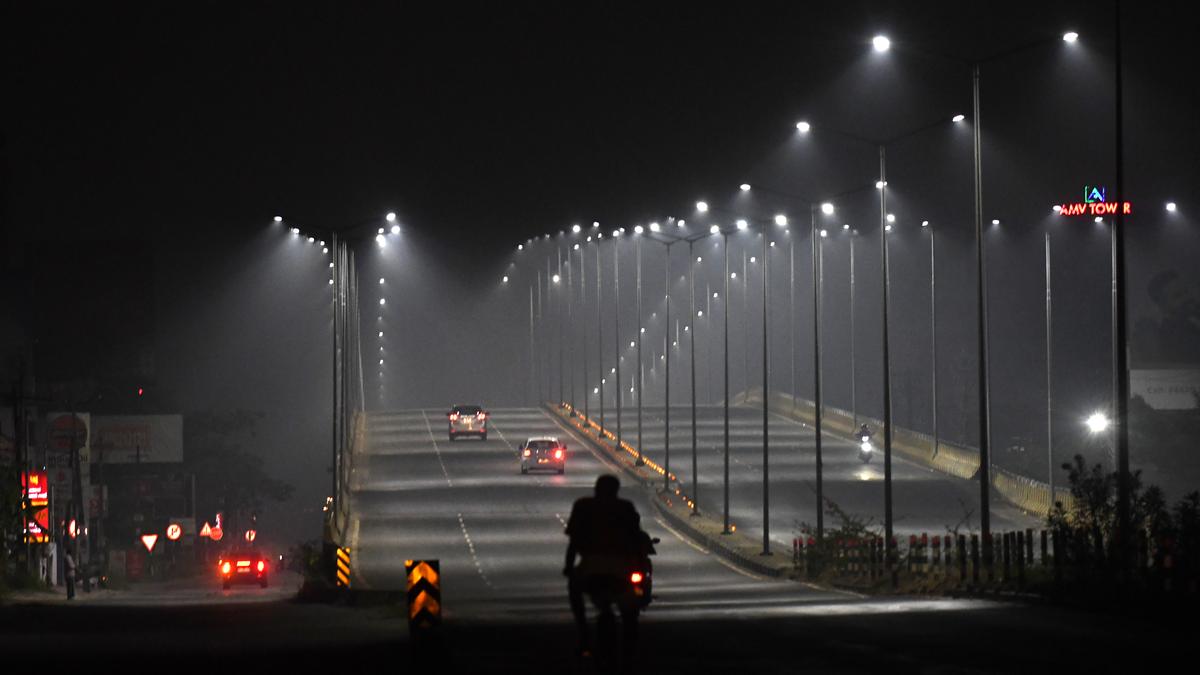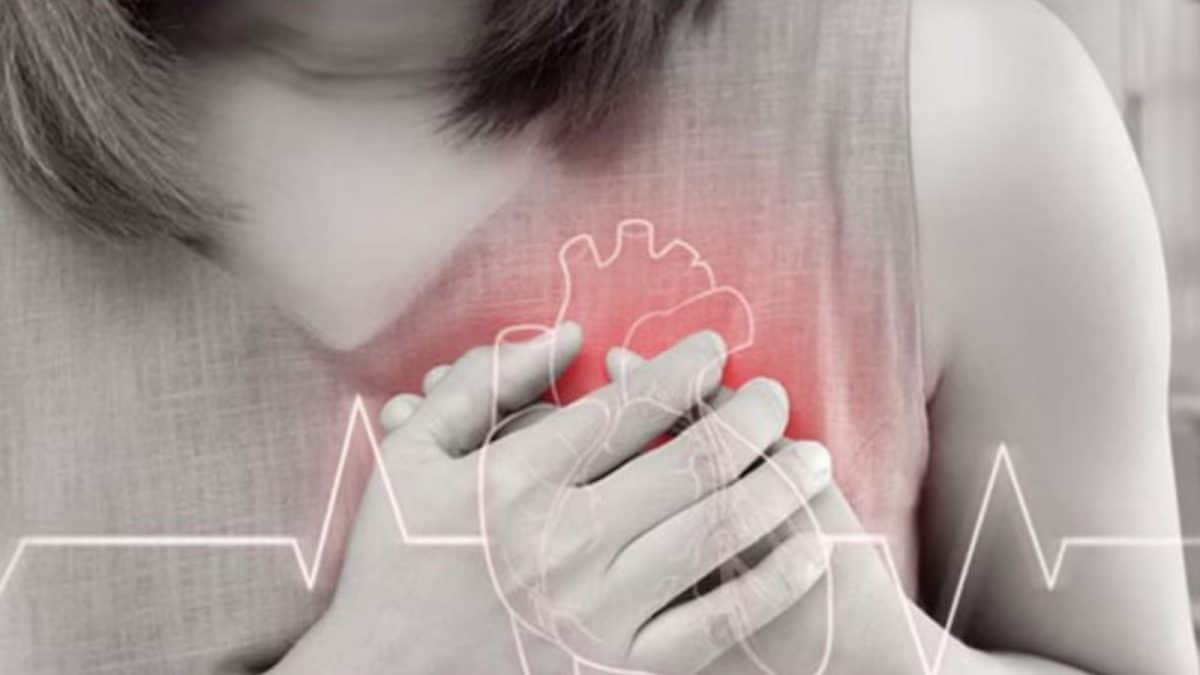Ravi still remembers the day everything changed. His mother had slipped in the kitchen, her head striking the corner of a doorframe. The family rushed her to the local government hospital. Tests were run and the doctors advised them to travel to a place they had never heard of before — the Institute of Mental Health (IMH) at Erragadda in Hyderabad.
That was 12 years ago. Since then, Ravi, a 38-year-old resident of Kamareddy, has made the 100-kilometre journey to the State capital countless times, guiding his mother through the same gates, holding a quiet hope. Doctors at the institute had diagnosed a brain injury that had affected his mother’s mental stability. “It is far and always crowded. But the doctors here are kind and the medicines are free. She has grown used to this place now. So have I,” he says.
The road to those gates is often easy to miss. On a regular weekday morning, Erragadda bustles with the commotion of pushcart vendors shouting out their prices for apples, bananas and greens. Shoppers haggle and vehicles jostle for space; the noise is relentless. Take a left turn and the chaos recedes into stillness. Here, hidden in plain sight lies one of Telangana’s most crucial institutions.
The turn opens into a 40-acre campus, where two-wheelers and cars belonging to the hospital staff fill the parking lot. A few patients arrive by private vehicles. Most have endured long journeys in buses or shared autorickshaws, driven by a familiar burden: the search for psychiatric care that is not just affordable but also humane.
Out-patient block’s capacity 150 people
Three roads branch out from the entrance. To the left, a small canteen serves steaming idlis and curd rice on paper plates to families who sit at plastic tables or cross-legged under tree shade. Straight ahead, the out-patient (OP) block, built to seat about 150 people, swarms with patients and their caregivers. Inside, tiled corridors echo with names being called. Benches stay occupied but rarely spill over, and security guards balance discipline with familiarity.
For patients like Ravi’s mother, the OP block is both an anchor and a lifeline. For others, the weight is different. “I come here every few months for treatment. The doctors are compassionate, but once I return home, it is hard to continue medication. In my village, people still speak in hushed tones if they see you coming out of a psychiatrist’s clinic. Sometimes I stop treatment just to avoid their stares and whispers,” confesses a middle-aged man from Nizamabad, waiting for his turn at the OP block.
This is IMH, an institution that carries countless burdens with patience, and answers them with kindness.
Among the patients that day was a man in prison clothes, flanked by two uniformed constables. The sight is not unusual here. IMH regularly receives inmates who require psychiatric evaluation, a less visible yet vital part of the institute’s work — one that underlines its role in the justice system as much as in public health.
But the hospital has also faced moments of crisis. During the Telangana Formation Day celebrations on June 2, sweets distributed to inmates triggered a food-poisoning outbreak. Seventy people were affected, many complaining of vomiting and diarrhoea. Some were shifted to the government-run Osmania General Hospital in Hyderabad, while the rest were treated on the campus itself. A 30-year-old long-term patient, Karan, died the following day. The incident led to swift action: the diet contractor was terminated, key medical staff were transferred and investigations were launched, including lab tests and a police probe. Hospital officials now say all patients are now stable and recovering.

Anitha Rayirala, Superintendent of Institute of Mental Health at Erragadda, Hyderabad. | Photo Credit: NAGARA GOPAL
Roots stretch back to 1907
For the city, IMH is both old and indispensable. Its roots stretch back to 1907, when it was first established in Jalna (in present-day Maharashtra) under the Nizam’s rule. A year later, the facility was shifted to Erragadda, on 48 acres of land initially leased from the Royal Air Force of the Nizam at ₹200-an-acre. Eventually, the land was handed over fully to Hyderabad State. Over time, about eight acres were carved out for the Greater Hyderabad Municipal Corporation and the Forest Department, leaving the campus as it stands today.
400-500 daily OPD footfall
Inside one of the consultation rooms at the OP block, IMH superintendent Anitha Rayirala barely pauses as she goes about reviewing patients, guiding staff and still managing a conversation about the hospital’s operations. “The daily OPD footfall is anywhere between 400 and 500. The hospital has around 600 in-patient beds, of which nearly 50 are earmarked for prisoners requiring psychiatric care. But not all those are occupied all the time,” she explains.
Patients come not only from across Telangana but also from neighbouring states like Karnataka and Maharashtra.
New block in few months
Amid these daily pressures, the hospital is also preparing for change. A new, multi-functional block is under construction. “We are among institutions recognised nationally for excellence. The new building will include departments for Clinical Psychology, Psychiatric Social Work, Psychiatric Nursing, a full-fledged rehabilitation centre, single-cell units, and advanced equipment like the rTMS (Repetitive Transcranial Magnetic Stimulation) machine,” she points out.
Plans also include emergency rooms, smart classrooms, a teaching-learning centre, a library and hostel facilities for postgraduate students.
Asked about the project’s timeline, Dr. Rayirala says, “It is nearing completion, likely within the next few months. The project predates my joining, so I don’t have the exact start date, but it has been in progress for several years.”
At the construction site, one of the contractors offers a more grounded view of the process. The cost of the new block, he explains, is about ₹25 crore, of which only half has been received so far. “Once the remaining funds arrive, the rest of the construction will take about two to three months, and the building will be ready for use,” he adds.
Struggles beyond infrastructure
While buildings rise and departments expand, the more difficult challenges at IMH are not made of brick and mortar. A common concern is the reluctance of families to take patients back, even after clinical recovery.
“There are times when, even after successful treatment, families refuse to take the patients home. Legally, if the family doesn’t give consent, it becomes complicated. We sometimes have to look for alternatives such as rehabilitation homes, which involve a different legal process altogether,” shares Dr. Rayirala.
She stresses that the hospital never withholds care, but the lack of familial support introduces a layer of complexity. “The legal safeguards are essential, to protect both the patient’s rights and institutional accountability. But they also slow things down when families disengage.”

The entrance to the Institute of Mental Health at Erragadda in Hyderabad. | Photo Credit: NAGARA GOPAL
The issue is compounded by the fact that, despite efforts to decentralise mental health services across districts, IMH remains the only standalone psychiatric hospital in the public sector across Telangana. “People from rural and semi-urban areas still prefer coming here for specialised care. But there are bottlenecks, patients refusing treatment or families unwilling to stay, which is sometimes necessary due to the absence of closed ward systems,” she says.
More people seeking help now
Since the COVID-19 pandemic, IMH has seen a steady rise in the number of people seeking psychiatric care. “There definitely has been increase in awareness. We are seeing more people come forward with anxiety, depression and related disorders. Non-pharmacological interventions like counselling are in high demand too,” she says.
The hospital’s de-addiction services mirror these trends. A dedicated ward with 22 to 30 beds caters to patients with substance-use disorders, though not all beds are always occupied. Most patients are admitted in open wards unless their condition requires closer observation. Alongside, the Day Treatment Centre (DTC) manages a large volume of outpatient cases. “In the last week of June alone, we had 21 to 26 new registrations and 27 follow-up cases. In June, the DTC handled 530 cases; in July, 529. Many of these are not alcohol or narcotics cases, but referrals needing structured outpatient support,” says a doctor associated with the centre.
Unlike in-patient wards, DTC does not house patients overnight. “They come for counselling or therapy sessions and return home the same day. Only those needing intensive care are shifted to the de-addiction ward,” the doctor explains.
Yet, not everything about patient facilities keeps pace with demand. Another doctor at the hospital, speaking on the condition of anonymity, notes gaps in infrastructure. “The medical care is adequate, but the wards, particularly those meant for closed ward patients with police cases, require better infrastructure. Where patients sleep and the overall upkeep of these spaces could definitely improve,” the doctor says.
On the academic front, however, IMH remains robust. The hospital has six professors, each supported by two assistant professors, alongside postgraduate students who join annually — about 22 in total.
For doctors serving here on tenure, the experience is a balance of learning and service. One doctor, posted at the institute for one-and-a-half years as part of a three-year term, says strengthening patient care facilities would make a world of difference to the overall quality of treatment.
Medicines, monitoring, missed follow-ups
On the matter of medication, IMH follows a monthly refill model. Patients receive a month’s supply after registration and are expected to return for follow-up. However, compliance remains a persistent challenge. “Many take medicines for a month but don’t return. It is not unique to psychiatry; we see this with diabetes and hypertension too. Each visit is logged in a register with dates and stamps, which helps track patients. But not everyone is traceable in real time. About 30-40% don’t return after the first visit,” says Dr. Rayirala.
Her concern, however, extends beyond registers and medicines, to the stigma that still silences mental health conversations. “People rush to the hospital if someone has fever or chest pain. But when someone says they want to end their lives, families try to manage the situation themselves instead of seeing a specialist. That needs to change,” she asserts.
For her, the alarming rise in suicides signals deeper fractures — poor communication, school pressures, relationship breakdowns and an overall lack of emotional support. “There is too much stress and too little understanding. If someone says they are not okay, listen to them. Take them to a doctor. Don’t delay or dismiss it. We have to start treating mental health just like we treat physical health,” she urges.
Vishal Akula, a psychiatrist at IMH, sees reason for cautious optimism. In his view, growing awareness has slowly begun to erode old fears. “Families are now less hesitant to approach IMH for consultation and treatment. It is a welcome change compared to earlier years when stigma kept many away,” he says.
As the day winds down, the OP block is still surrounded by patients and caregivers amid a constant shuffle of names being called out. Some begin to gather their bags or clutch paper envelopes filled with medicines, ready to board buses back to their towns and villages. Others linger in the waiting area, settling in for another night on the campus — reminders that recovery here is rarely a straight line, but marked by pauses, setbacks and quiet persistence.
(For free and confidential emotional support, one can call Tele-MANAS helpline number 14416 or Roshni at 8142020033/ 8142020044 between 11 a.m. and 9 p.m. on any day or write to [email protected])



.png)
.png)
.png)
















 2 hours ago
5
2 hours ago
5








 English (US) ·
English (US) ·